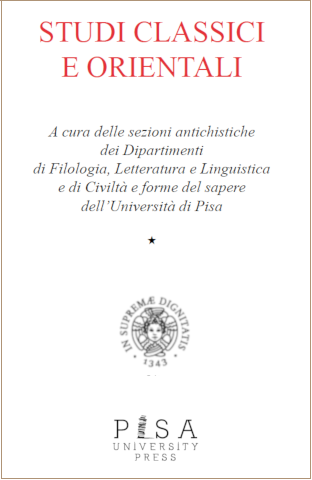I DEVERBALI AGENTIVI IN -TAR NEI TESTI VEDICI E I DEVERBALI AGENTIVI IN -τηρ E -τωρ NEI TESTI OMERICI E NEI TRAGICI: UNA NUOVA INTERPRETAZIONE FUNZIONALE
Abstract
The Indo-European series of deverbatives in *-ter and in *-tor, which both express an agent, have always been analysed with the purpose of reconstructing their original functions. Nevertheless, scholars have also continued to be in disagreement in recent times about their value and in particular about the attribution of a nominal or verbal status to both of these series. In this study a systematic analysis is carried out to examine the uses of these deverbatives prevalent in Vedic and Greek in the different phases of development of both languages. It appears that both series of agentive deverbatives can be reconstructed as ancient verbal adjectives which inherited the verbal feature prominent in the Indo-European verbal system at the moment of their formation, namely the aspect. In particular, the series in *-ter inherited the perfective and the ingressive aspect, while the barytone series inherited the imperfective aspect. It also appears that during their evolution the two series underwent a transition from a phase in which they showed aspectual features to a phase in which they were characterised by modal features. Finally, when the verbal features faded, the oxytone deverbatives, which share with the nouns the feature of limitedness, came to the nominal status and the barytone deverbatives, which share with the adjectives the feature of stability in time, came to the adjectival status.


